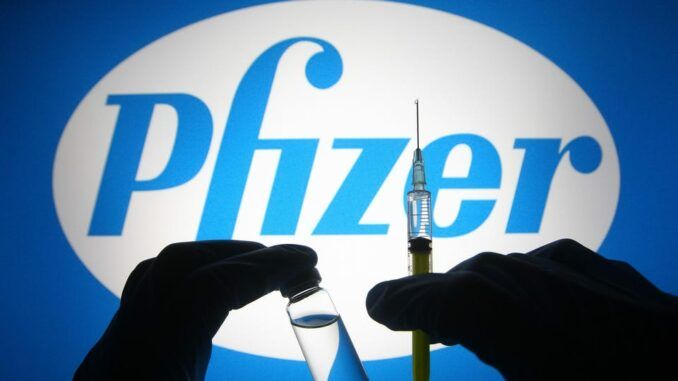
An independent panel at the Federal Drug Administration (FDA) has voted 16-2 against a widespread Covid-19 booster shot program.
The Vaccines and Related Biological Products Advisory Committee (VRBPAC) committee voted against recommending approval of the Pfizer booster shots for most Americans stating that there is not enough evidence they are safe and effective.
They did however approve the shots for people 65 and older and those who at high risk of developing a severe case of the virus.

BYPASS THE CENSORS
Sign up to get unfiltered news delivered straight to your inbox.
You can unsubscribe any time. By subscribing you agree to our Terms of Use
The move is another significant blow to the Biden administration after it announced its plan to “boost” adults before advisory committees had a chance to review scientific evidence in public.
The Mail Online reports: Members said said there was not enough evidence that a third dose was safe and effective for use in people under age 65.
The FDA is not bound to follow the advisory group’s recommendations but the agency rarely goes against the guidance of VRBPAC.
The next step before the FDA can issue authorization is a recommendation for approved by the advisory committee for the Centers for Disease Control and Prevention (CDC).
Pfizer had previously submitted data that the company claimed show its vaccine’s efficacy falls by about six percent every two months following the second and final dose.
But many scientists, including senior officials at the FDA, disagree and argue that the vaccines are still highly effective at preventing severe illness and death.
Last month, boosters were approved for immunocompromised Americans who had received either the Pfizer or Moderna vaccine after data showed they were less likely to develop high antibody levels after two doses.
At least 2.04 million people in the U.S. have received booster doses as of Friday, according to data from the CDC.
The White House also announced last month booster shots would become available for all Americans starting on September 20 due to data suggesting waning efficacy of the initial shots.
At the time, Pfizer said its early data suggested people who received booster doses between six and 12 months after their final dose had high levels of protection.
The company filed for emergency use authorization for booster doses in late August and submitted data to the FDA, which made public on Wednesday.
The documents suggest that protection from two doses of the Pfizer vaccine declines from 96.2 percent at seven days after dose 2 to 90.1 percent two months later to 83.7 percent up to six months later.
What’s more, they cited data from Israel showing people fully vaccinated in January 2021 had a 2.26-fold increased risk for breakthrough infections compared to those fully vaccinated in April 2021.
Another Israeli study discussed in the documents showed that effectiveness against infection was 39 percent and against symptomatic disease was 40 percent from June 20, 2021 to July 17, 2021, when the Delta variant was the dominant strain.
Comparatively, between January and April, these rates were at 95 percent or higher.
The team also released data from a clinical trial involving 23 participants who participated in Pfizer’s early-stage trials last year.
Each had received two doses of the vaccine and were given a booster dose at least six months later.
Of the participants, 11 were in the younger adults group of those aged 18 to 55 and 12 were aged 65 to 85.
After the third dose, neutralizing antibodies against the original strain of the virus rose five-fold in the 18-to-55 age group and seven-fold in the 65-to-85 group.
Against the Delta variant, antibody levels after a booster shot rose five-fold in the younger adult group and 12-fold in the older adult group.
During the VRBPC meeting, members pushed back against these data.
Dr Phil Krause, deputy director of the FDA’s Office of Vaccines Research and Review, said that Pfizer’s data had yet to be independently reviewed by experts.
‘One of the issues in this is that much of the data that’s been presented and being discussed today is not peer-reviewed and has not been reviewed by FDA,’ he said.
FDA and CDC officials have previously expressed to their doubts to the White House about the need for extra doses.
In a separate briefing document also published Wednesday, FDA scientists wrote with a skeptical tone about the need for booster shots.
‘Overall, data indicate that currently US-licensed or authorized COVID-19 vaccines still afford protection against severe COVID-19 disease and death in the United States,’ the scientists wrote.
They added that studies on booster doses have presented conflicting findings and that ‘known and unknown biases that can affect their reliability.’



of the 7.8 billion people in the world 5.78 billion have the shots but yet there is still more covid than ever in those without shots.Stopping the booster shots is just shooting our selfs in the foot crazyness yet again,in order to stop covid we have to get shots until it is under control and than we may even be able to wipe it out?
No There’s more people who have had the shots who have covid now than before the shots were rolled out. Covid vax doesn’t stop you getting COVID or transmitting covid and now in Israel they’re saying they need a 4 th shot because 3 don’t work Then it will be 5 and so on Because they just don’t work.
A parasite (besides Graphene oxide and stainless steel) was found in Pfizer’s liquid.
Now why would they want to inject parasites?
Please cite your references.
Someone is getting fired or murdered
Clinton-cided.
Ivguessxrgeyrscreasiningvif your ivedc65 your going to die soon anyway. And that’s exactly why they shouldn’t be given to older people as it’s just a waste of money. Course it’s all profits to the sellers and those getting paid far too much to do a simple jab that a 6 yo could do
I guess they’re reasoning that if your over 65 your going to die soon anyway
And they stole their pensions and social security
The mountain of lies is beginning to crumble.